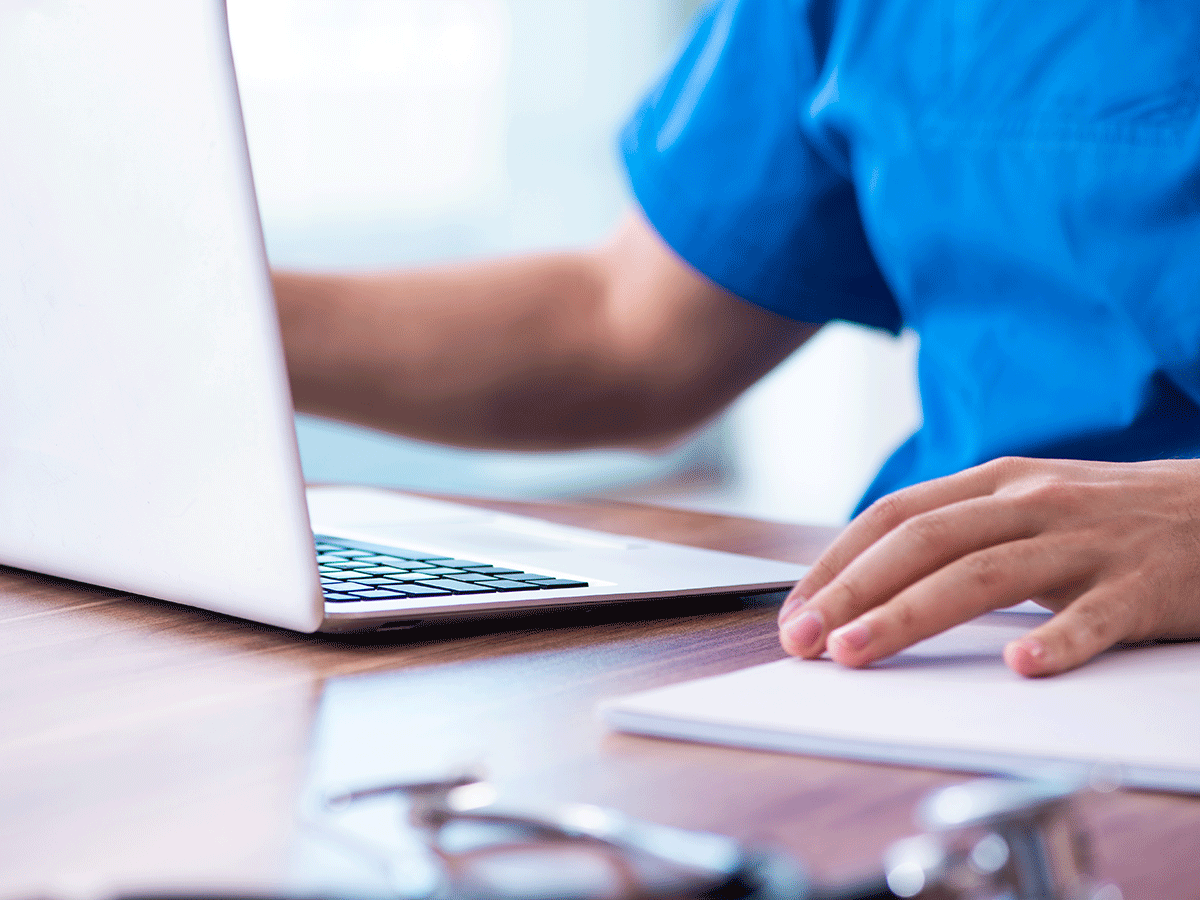Diabetes and Coronavirus: 13 Things You Need to Know
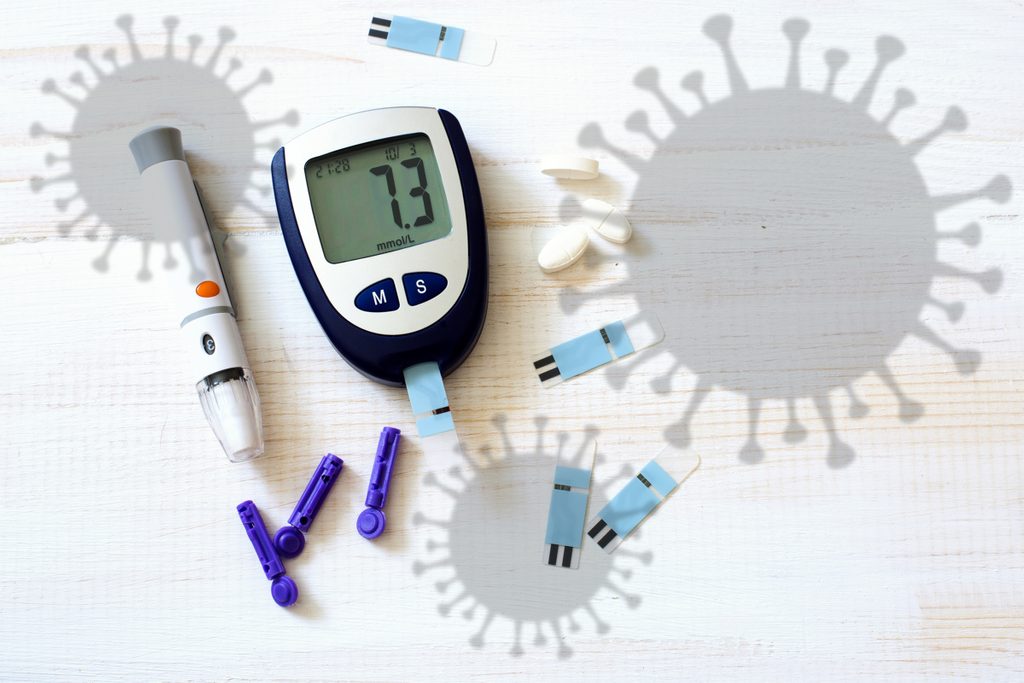
People with diabetes are at a higher risk of Covid-19 complications. Now there's evidence that Covid-19 might bring on diabetes. Here's what you need to know.
It’s known that people with certain chronic conditions, including diabetes, are at a much higher risk of developing serious complications and even dying of Covid-19. Now a letter in the New England Journal of Medicine (NEJM) suggests that a Covid-19 infection itself could actually kickstart diabetes in people who didn’t already have it.
Here’s what we know so far.
What the recent publication says
The NEJM letter isn’t a study, but it did point out that there have been new cases of diabetes appearing in Covid-19 patients as well as severe complications in people who already had diabetes (such as diabetic ketoacidosis (DKA), a potentially life-threatening spike in blood sugar). The authors have established a registry to start following patients with Covid-19-related diabetes, which they hope will shed light on the issue. “The whole point of this letter is to bring up lots of questions and to pull more physicians into contributing to the registry,” says Deena Adimoolam, MD, and endocrinologist and spokesperson for the Endocrine Society.
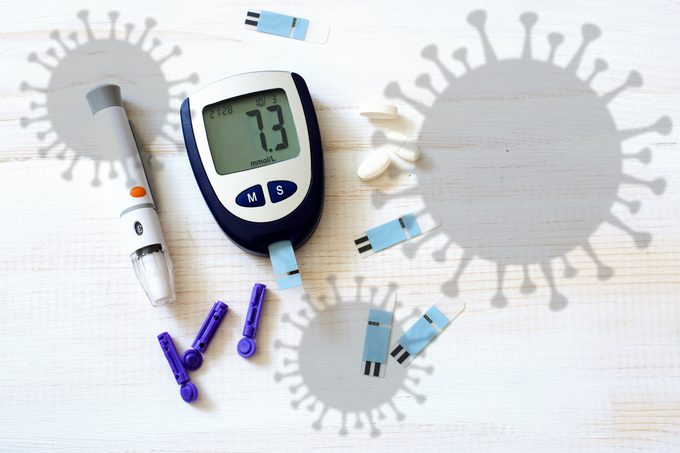
Diabetes and coronavirus: what we do know
Scientists have found that the virus binds to a specific receptor (angiotensin-converting enzyme 2 or ACE2) in human cells that is found not only in the lungs but also in organs that play roles in diabetes. This includes the beta cells in the pancreas, which produce insulin, as well as fat tissue and the kidneys, according to the NEJM authors. It’s possible that the virus could wreak havoc with the metabolic system as it invades these organs. If so, it wouldn’t be completely surprising. Other viruses that bind to ACE2 receptors have also caused diabetes, they add.
No one knows if the blood-sugar problems go away after the person has recovered from Covid-19, or if the new-onset diabetes is more likely type 1 (the pancreas doesn’t produce insulin) or type 2 (when there is a failure to respond to insulin and/or the pancreas doesn’t produce enough of the hormone). But we to know that people who have diabetes and who contract any kind of virus tend to be harder to treat. “This is because immune cells [of people with diabetes] are compromised due to high blood sugar,” explains Dr. Adimoolam.
Is there an increased risk of death?
As many as one-third of deaths from the new coronavirus are in people with type 1 or type 2 diabetes. According to one analysis of more than a quarter-million people in England, people with type 1 diabetes had 3.5 times higher risk of dying from Covid-19 in the hospital compared with those without diabetes. People with type 2 diabetes were twice as likely to die. These results still need to be confirmed, but other studies have reported similar findings.
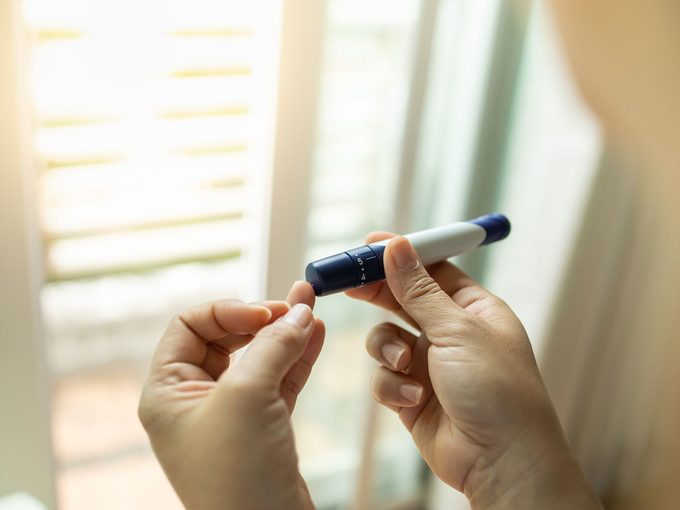
Is it worse if the diabetes is uncontrolled?
Uncontrolled or poorly controlled diabetes means that a person’s blood sugar levels remain high despite treatment—but whether this means a patient will do worse is a complicated question. “There have been some smaller observational studies suggesting that if you have poorly controlled diabetes during Covid-19 infection, you’re more likely to have a bad outcome like being put in the ICU, being intubated, using ventilator support or dying,” says Morgan Jones, MD, assistant professor and director of inpatient endocrinology services at University of North Carolina Health in Chapel Hill. It’s not clear if you get sick because your blood sugar is out of control or if your blood sugar is out of control because you are sick.
Other risk factors to note
People who are obese and especially morbidly obese are also more likely to have Covid-19 complications and even die of the disease, Dr. Jones says. “Exactly why is difficult to say.” Being overweight is a risk factor for developing diabetes while staying a healthy weight can help control blood sugar.
Unstable blood sugar levels also contribute to some of the complications of diabetes, like neuropathy, blindness, heart disease, and kidney disease, according to the American Diabetes Association (ADA). Some of these conditions also put you at higher risk for Covid-19 complications.
Is there a higher risk of diabetic ketoacidosis with Covid-19?
In general, there is a higher risk of DKA in people who have diabetes (especially type 1 diabetes) and a viral infection, says the ADA. Other stressful events like heart attacks and strokes can also raise the risk of DKA, says Dr. Jones, as can not taking your insulin. Dr. Jones says his hospital has not seen a lot of DKA in Covid-19 patients with diabetes, but other regions and countries have. At least one study noted a higher level of DKA in hospitalized patients in Wuhan, China.
Preventing sepsis
According to the ADA, many people with diabetes and Covid-19 have had sepsis and septic shock. DKA can aggravate this. The association suggests checking for ketones (potentially dangerous compounds that can build up in your blood) if blood sugar has been more than 240 mg/dl in two or more consecutive tests. While many hospitalized Covid-19 patients with diabetes have very high blood sugar levels and need high amounts of insulin, others actually have lower blood sugar levels, says Dr. Jones. “We don’t know exactly how each individual will behave from a diabetes perspective,” he adds.
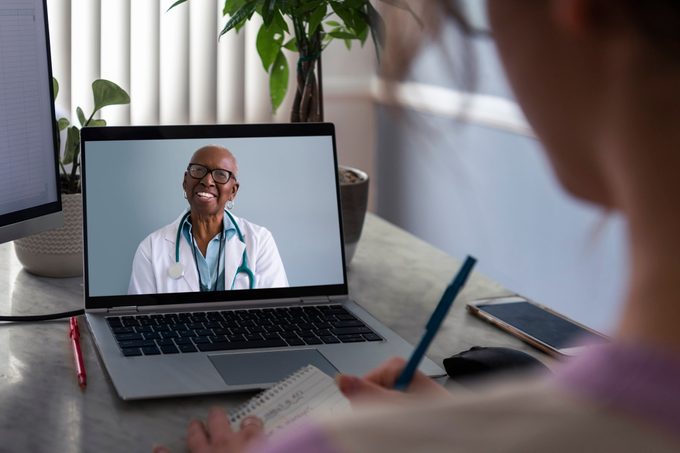
Check with your doctor
If you have diabetes, even if your blood sugar levels are controlled—and even if you have no reason to think you have Covid-19 or have been exposed to the virus—stay in touch with your doctor. “The biggest thing I would encourage patients to do, even if they’re not due for a visit, is call your provider to set up a visit,” says Dr. Jones. This could be an in-person visit if you’re comfortable with going to a medical office, or a telehealth visit. “Multiple smaller studies have shown that virtual care by telephone or video visit is very effective,” he points out.
Definitely call your doctor if you feel like you’re developing symptoms like a fever or a dry cough and have certain information available, such as your blood sugar levels, a ketone reading (there are at-home test kits), and how much fluid you’ve been drinking.
Sign and symptoms
If you haven’t already, get tested for both diabetes and prediabetes. According to the Centers for Disease Control and Prevention (CDC), of the 34.2 million Americans who have diabetes, more than one-fifth (21.4 percent) are undiagnosed. An estimated 88 million (more than one-third) Americans have prediabetes and 84 percent don’t know it.
Signs and symptoms includes blurred vision, urinating often, dry mouth, and feeling continuously tired, says Dr. Adimoolam. If you’re overweight or obese and have a family history of the disease, you should also think about getting tested.
Make sure you have enough supplies
Although there don’t seem to be any shortages of diabetes supplies, like insulin, medications, and testing strips, Dr. Jones recommends that you get the maximum supply possible. “Get a 90-day supply rather than 30 days,” he advises. And at least two weeks’ worth in case you have to quarantine.
Make sure your supplies are the right ones
If you do get infected with Covid-19, some of your medications may change—another reason to contact your doctor. “Some medications we use for diabetes, although extremely effective and good for overall health, may need to be adjusted [if you have Covid],” says Dr. Jones. For instance, you may need more insulin if you’re sick, and more fluids.
Control your blood sugar
Given the potential risks if you do become infected with Covid-19, it’s all the more important to pay attention to your blood glucose levels now, says the International Diabetes Federation. In addition to medications and water, you’ll want to make sure you have healthy food. In case your blood sugar levels drop, make sure you have supplies to get them back up. If you live alone, you should have someone who can help out if you do become ill. Also: Make lifestyle choices that help keep your diabetes under control, such as getting enough sleep, keeping a regular schedule, and not overbooking yourself.
Protect yourself against Covid-19
This is advice everyone should follow, but especially if you have a chronic condition like diabetes. Practice social distancing, which means staying six feet away from others, wear a mask, and wash your hands regularly with soap and water. “Avoid anything that’s not necessary for daily living like groceries and doctors’ appointments, says Dr. Adimoolam. “You have to make smart decisions regarding social interactions.” If you live with other people, they should be taking the same precautions as you would—as if they were high risk as well.
Next, read up on the coronavirus symptoms to watch out for.




